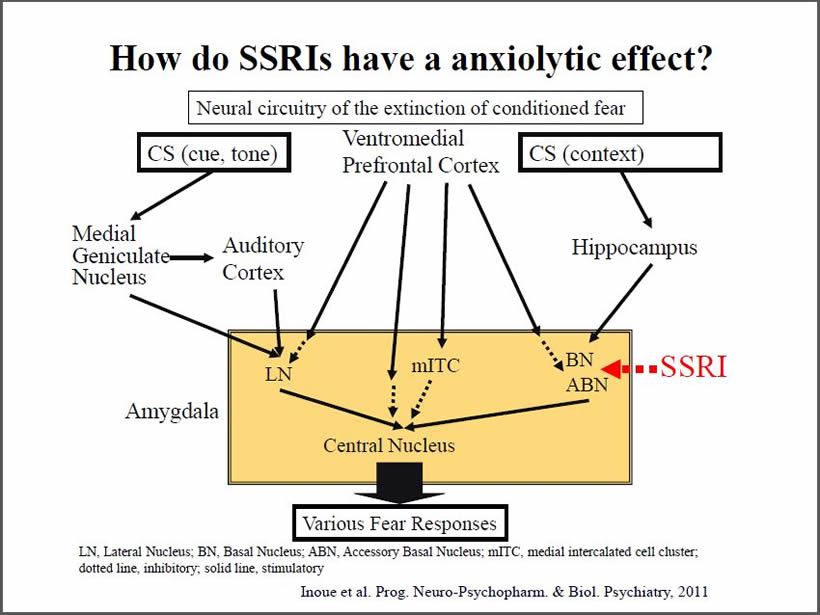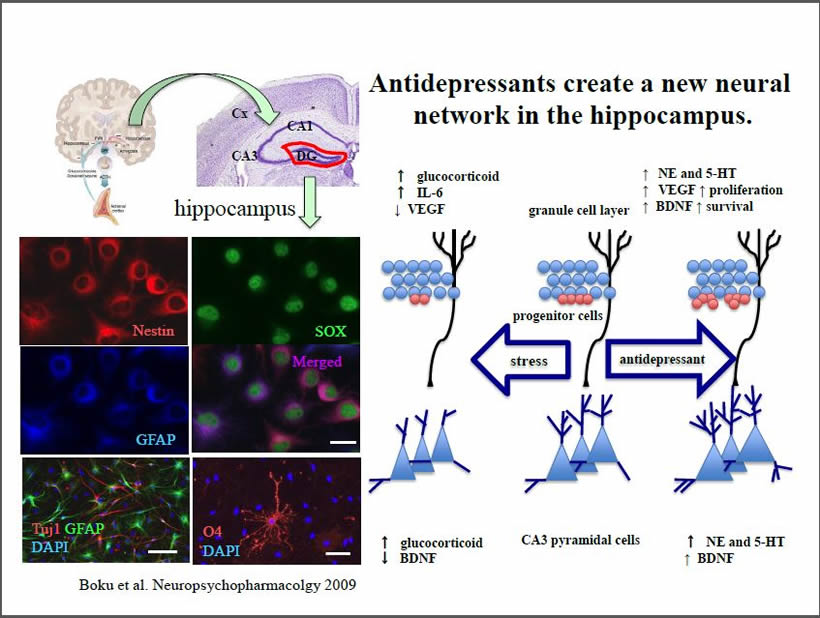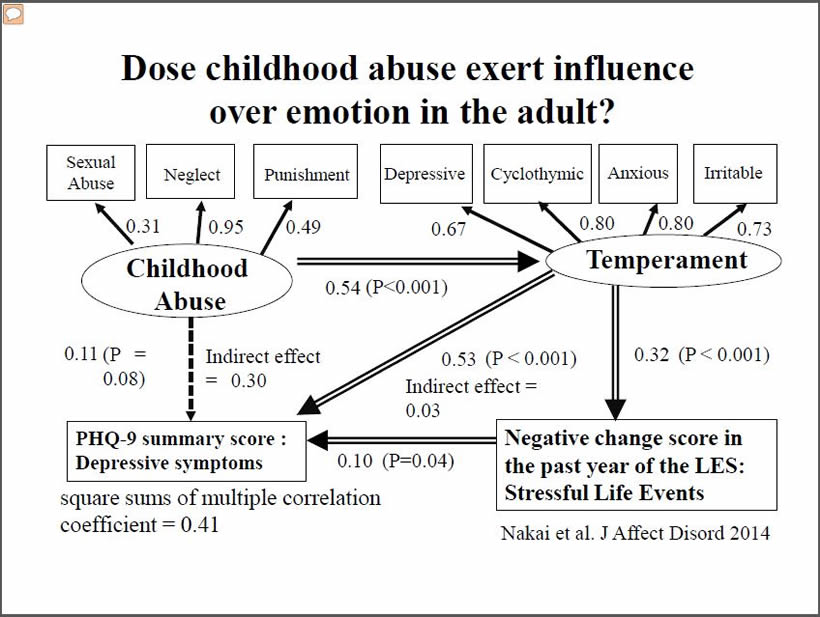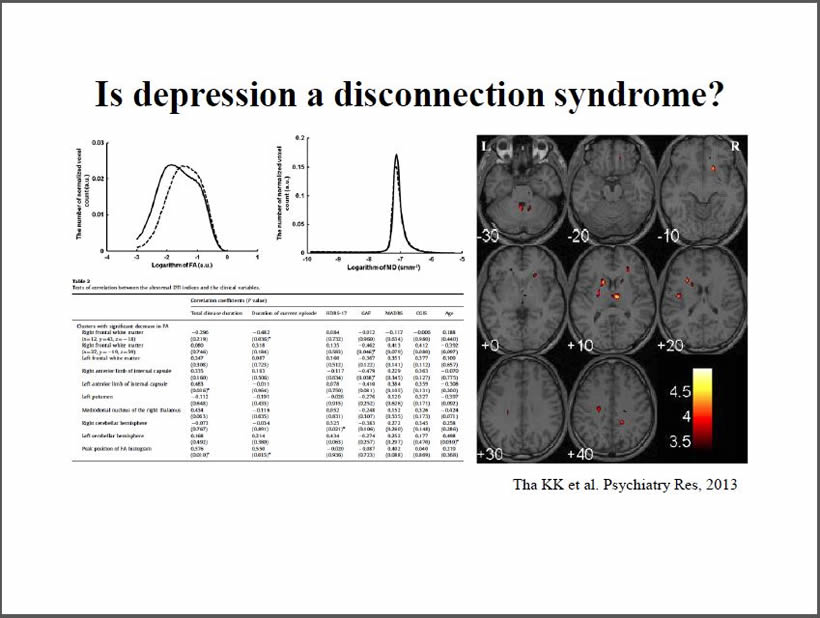Mood Disorder Group
Members
- Hisashi Narita
M.D., Ph.D.
Chief / Assistant Prof. - Niki Udo
M.D., Ph.D.
Assistant Professor - Takashi Ozaki
M.D.
Medical Staff / Graduate Student - Shizuka Mitou
M.D.
Medical Staff
Research contents
Our group have focused not only on clinical but also basic studies on the pathophysiology of depression and bipolar disorder, and their therapeutic drugs.
Human and animal such as mice and rats are widely employed in our studies. Therefore our resarch projects consist essentially of basic animal, basic human and clinical studies.
Basic animal studies are focused on the action mechanism of antidepressant drugs, mood stabilizers, and their combined use on neurotransmitters, receptors, second messengers, hippocampal neurogenesis and anxious behavior.
We have so far analyzed them with psychoparmacological, molecularbiological, biochemical, behavioral and histological methods, and in recent years we we have started to see the epigenetic modification.
Further, we have started to create their disease models and use neural progenitor cells.
In the basic human studies, we have investigated association between genes and temperament, serotonin-stimulated intraplatelet calcium response as a marker for mood disorders, relationship between activity of the hypothalamic-pituitary-adrenal system and hippocampal volume, and so on.
We recently exaime the patients' brain with diffusion tensor image of MRI and functional MRI, and analyze the influence of early life stress on temperament and emotion in adluts with advanced statistics.
In the clinical study, we have researched the therapy including the drug-use algorithm for treatment-resistant depression and the pathophysiology .
In these studies we have revealed the effectiveness of dopamine agonists and high rate of bipolar disorder.
We recently conduct large-scale clinical studies collaborating with other universities, and promote the development of a simple diagnostic tool, studies on elderly patients with mood disorders.
Our group tries to bring significant benefits to the patients with extensive knowledge obtained from neurosciences to a psychiatric clinical practice.
If you are interested in our research, we welcome you to join us and challenge together.




